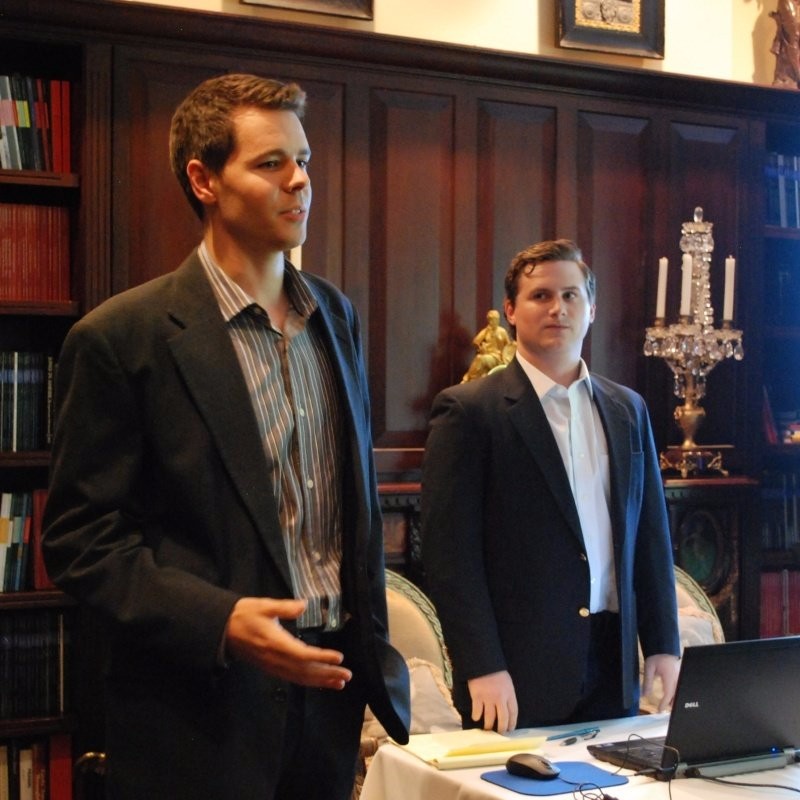
DePaul University business student Monika Jones' curiosity about the world of finance began with an unusual gift she received on her 13th birthday.
"My uncle gave me a brokerage account," the DePaul junior explains. "I guess he didn't know what to give a 13-year-old."
On subsequent birthdays and holidays, her uncle added money to the account and taught her about the markets. "We'd decide together how to invest it," she says. "But I made him do all the research."
This early experience with investing led Jones to major in finance at DePaul. And now she has a chance to apply what she learned from her uncle — and do her own stock research — as a contestant in DePaul's 12th annual Driehaus Virtual Portfolio Competition.
Jones is one of 43 undergraduate students who have formed 12 teams to compete in this year's virtual investing contest, which runs from October through May. Created through the generosity of alumnus and college namesake Richard Driehaus (BUS '65, MBA '70), founder of Chicago-based Driehaus Capital Management, the competition simulates the real world of investment management, teaching students how to use sophisticated market data analyses to build stock portfolios.
Here's how the competition works: Each team starts out with $200,000 in virtual cash and must chose a growth or value approach to investing. Over the course of the academic year, the teams choose small cap stocks (stocks with a relatively small market capitalization) for their portfolios from those listed on the Russell 2000 index. The teams have access to Bloomberg and Morningstar market data terminals at DePaul — the same type of data used by professional stock analysts — to research their stocks. The students then make mock trades via a simulated computer trading platform. Like real money managers, the teams are required to regularly issue investment reports to their "clients," a panel of DePaul finance faculty and Driehaus representatives who judge the competition. Teams are evaluated on how well they stick to a value or growth style of investing, their stock selection rationale, as well as their returns.
While the students' investments are made with faux cash, the competition's top prizes are in real dollars — $8,000 for the first-place team, $6,000 for second place and $4,000 for third place.
To kick off the competition, Jones and her fellow competitors attended a luncheon at the DePaul Center, where DePaul finance professors and industry professionals gave them advice. Michael Petersen, senior analyst, and James Kurzawski, associate analyst, gave students pointers on analyzing stocks, and Jason Vedder, director of trading, discussed trading room activities.
Finance Chair Elijah Brewer told students that whether they win or lose, the competition will be rewarding because not all college students have an opportunity to learn from the pros and master the kinds of data analysis tools that DePaul makes available to them.
"I went to a small school in Appleton, Wisconsin — Lawrence University," Brewer said. "We had nothing like this. This competition teaches you about investment strategy. You'll not only gain tools and skills to help you with your personal finances, but it also will help you fill out your résumé. Employers are interested in this."
Investment consultant John Merritt, one of the competition judges, agreed. "If I saw experience using Bloomberg and Morningstar on someone's résumé, I would be super impressed," he told the students.
Students will need to learn to use these tools to thoroughly research the stocks they choose for their competition portfolios, Finance Instructor and Competition Faculty Advisor Ann Marie Klingenhagen told the teams. In fact, she said, Richard Driehaus himself suggested that the competition focus on small cap stocks because they are issued by lesser-known companies that require more analysis. "He didn't want you just buying large company stocks because that wouldn't be challenging," she said. "He said, 'Let's make it the Russell 2000 because you will have to do your homework.'"
And once this research is turned into an investment strategy, she advised students to be ready for the market's rollercoaster of excitement. "It's going to be a thrill to buy a stock and see it go up. But there's also the heartbreak of seeing a loser you should have sold go down. And that's the learning value of his competition."
After listening to advice from professors and the traders who take this rollercoaster ride every day, competitor Monika Jones says she's ready to start researching her stocks. "This is a great way to prepare for the real world of finance."